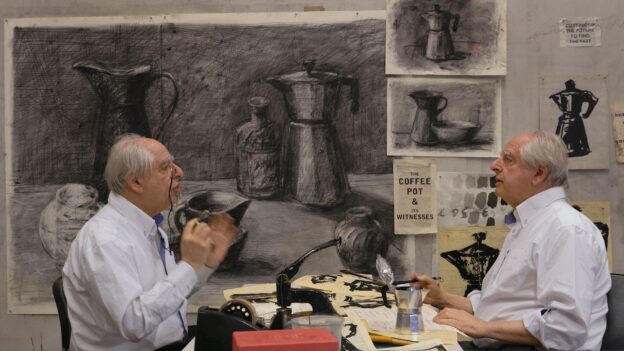
UK Court Rules in Favor of Fisheries Company in Lawsuit Against Satirical Artist

### Intellectual Property vs. Art: The Case of Odee Friðriksson and Samherji
**Introduction**
A recent judgment in the United Kingdom has reignited a long-standing debate on the balance between intellectual property (IP) rights and freedom of expression in art. Icelandic conceptual artist Odee Friðriksson, known artistically as “ODEE,” came under legal scrutiny following an IP lawsuit filed by Icelandic fishing giant Samherji. At the heart of the controversy is Friðriksson’s artwork, *We’re Sorry* (2023), a satirical piece that parodied Samherji’s logo and website to critique the company’s alleged involvement in the notorious *Fishrot* scandal.
While the artwork highlighted corporate malpractices, including alleged bribery and corruption in Namibia, the judgment has raised pertinent questions about the legal boundaries surrounding artistic expression and corporate power. Let’s dive into the case, the significance of the verdict, and what it means for the future of both art and corporate accountability.
—
### The *Fishrot* Scandal: A Brief Background
In 2019, a former manager of Samherji leaked documents that exposed alleged ties between the company and high-ranking Namibian officials. These illegal ties were reportedly forged to help Samherji secure fishing quotas in Namibia, a move that strained the country’s local fishing industry. The *Fishrot* scandal—named after claims of bribery, exploitation, and corruption—sent shockwaves throughout both Namibia and the international fishing industry. While Samherji has consistently denied the allegations, a leaked trove of documents published on *WikiLeaks* suggested the company promised to build infrastructure in Namibia in exchange for political favors.
Samherji’s initial response was to release an official “Statement and Apology” in 2021. However, the statement refrained from admitting guilt beyond pointing to “one rogue employee.” This public relations move did little to quell criticism, with many observers, including artists like Friðriksson, continuing to challenge the company’s narrative.
—
### *We’re Sorry* and Odee Friðriksson’s Satirical Art
In May 2023, Friðriksson launched *We’re Sorry*, a bold and provocative art project. The work mimicked Samherji’s official UK website but took on a tone of corporate contrition that Samherji had never publicly adopted. The satire’s visual anchor was a replicated homepage with the company logo and an altered headline reading *“WE’RE SORRY”*. Visitors to the website were greeted by what appeared to be an official apology issued by Samherji, acknowledging past corruption, bribery, and other unethical practices. The statement even pledged cooperation with international authorities and reparations for the company’s involvement in corrupt activities in Namibia.
Despite being clearly satirical, the work was designed to blur the line between parody and reality. Friðriksson linked the fake website to samherji.co.uk, a legitimate domain name associated with the company in the UK. This tactic, while creative, opened the door for Samherji to file a legal suit against the artist, asserting that the parody misused intellectual property, including their logo and domain, in a deceptive way.
—
### The Legal Battle: Art vs. Corporate Rights
Samherji’s lawsuit against Friðriksson rested on claims of malice, fraud, and IP infringement. Their central argument was that *We’re Sorry* misused the company’s logo and website to deceive the public and tarnish its reputation. From Samherji’s perspective, the work went beyond standard parody or satirical critique by intending to trick people into believing it was an authentic public relations statement.
In response, Friðriksson invoked his freedom of expression, protected under European human rights law. He argued that his artwork was an exercise in social commentary, protected under provisions for parody and pastiche. Additionally, he emphasized how his critique sought to expose corporate malpractices, not defraud the public.
Judge Paul Richard Teverson ruled in favor of Samherji, calling the satirical use of their logo and website an “instrument of fraud.” According to the judge’s summary judgment, the artist’s work crossed a line, deceiving viewers rather than offering legitimate criticism or parody. Teverson stated that Friðriksson would have difficulty defending his case at trial and dismissed the case based on copyright infringement, fraud, and malice.
—
### Implications for the Arts and Free Speech
This judgment raises critical concerns about the evolving intersection of corporate influence and artistic freedom. While intellectual property laws are designed to protect businesses from external exploitation, they can also stifle the efforts of socially-conscious artists who wish to criticize powerful entities.
Friðriksson’s attorney, Andra Matei, voiced frustration in a statement to art publication *Hyperallergic*, saying they are determined to appeal the decision. Matei underscored that